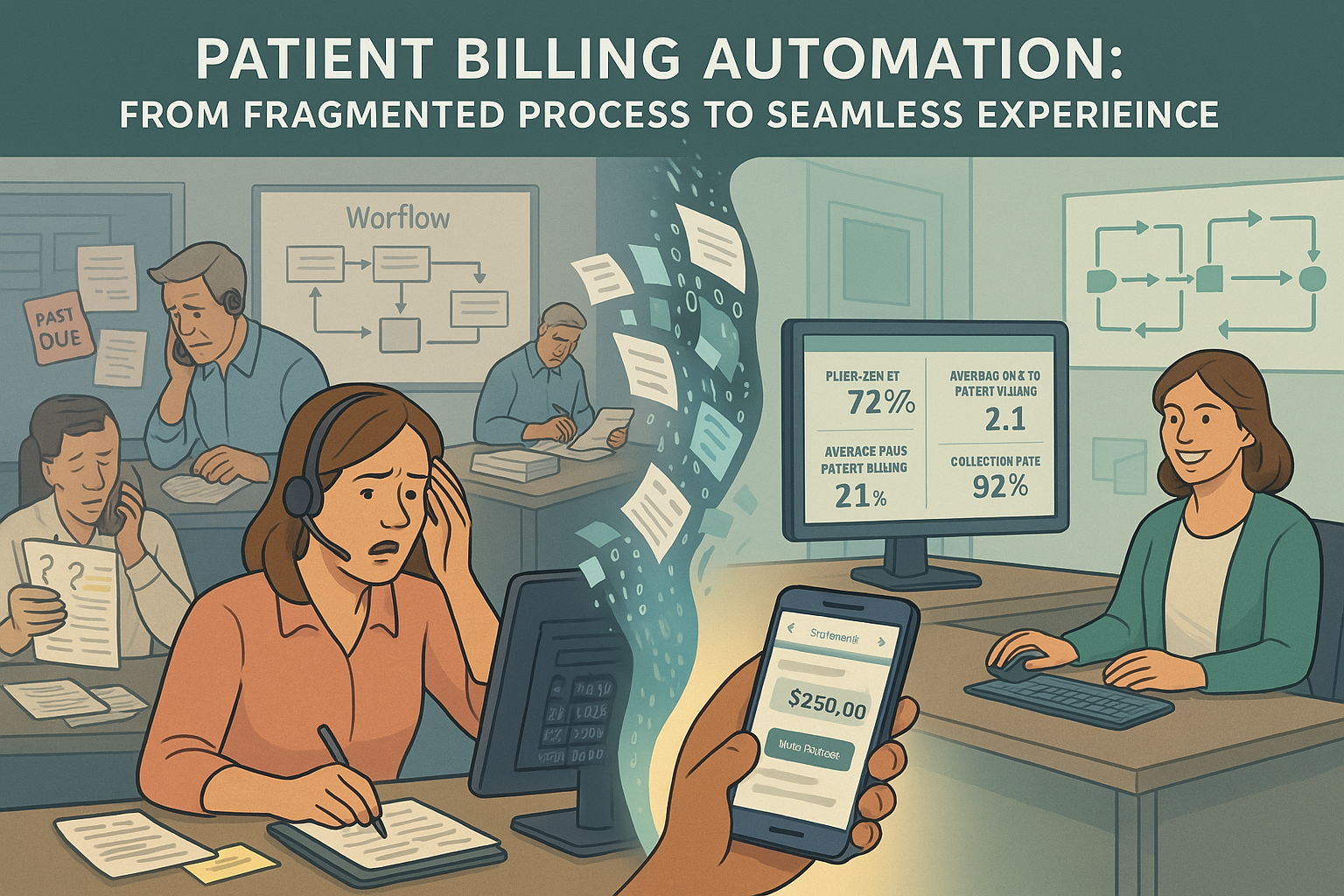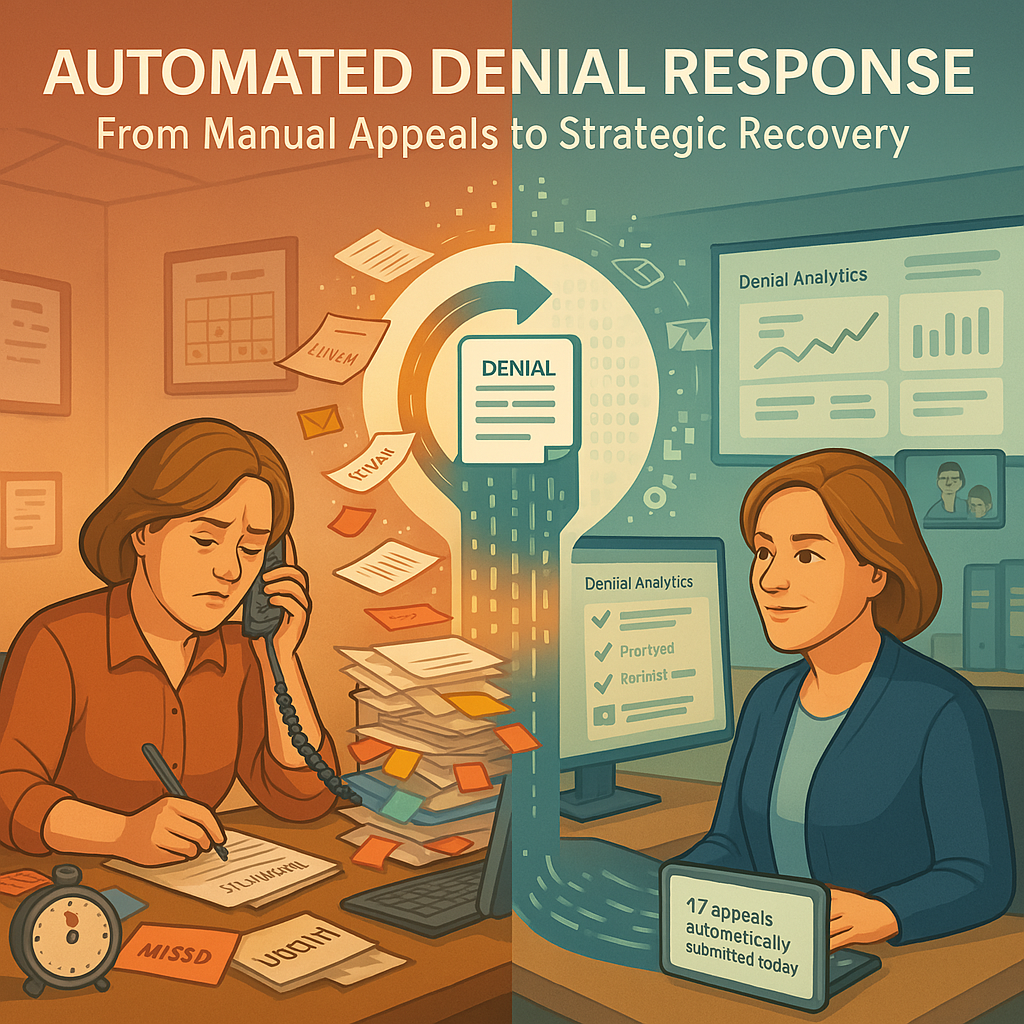Introduction
In the ever-evolving landscape of healthcare, Revenue Cycle Management (RCM) plays a critical role in ensuring the financial stability and efficiency of healthcare organizations. RCM involves managing the financial processes related to patient service revenue, from appointment scheduling and registration to billing and payment collection. However, the sector is facing significant staffing challenges that impact its effectiveness. Simultaneously, the dynamics of RCM vendors are also shifting in response to these challenges, creating a complex interplay that shapes the future of healthcare financial management.
Addressing Staffing Challenges in Revenue Cycle Management
In today’s tight labour market, RCM teams are often stretched thin, juggling multiple tasks and grappling with staffing shortages. This is especially challenging when your RCM vendor identifies issues that fall outside their scope of work but require additional effort on your end. What’s the solution? Creative staffing solutions. In this post, we’ll explore how to leverage your RCM partnership to address these challenges and potentially unlock significant revenue gains.
The Challenge: Unexpected Workloads and Limited Resources
Imagine this scenario: Your RCM vendor discovers a billing issue that’s causing denials for a specific group of payers. Fixing it requires extra steps that aren’t part of your current agreement, and you’re already understaffed. Your vendor might hesitate to take on these extra tasks, especially if their compensation is tied to collections.
This creates a dilemma: You need to fix the issue to avoid revenue loss, but you lack the resources to do so efficiently.
Talent Shortage: The healthcare industry is experiencing a shortage of skilled professionals, particularly in specialized areas like RCM. The demand for qualified RCM staff often exceeds supply, making it difficult for healthcare providers to find and retain experienced personnel. This talent gap is exacerbated by the complexity of RCM processes and the need for continuous education to keep up with regulatory changes.
High Turnover Rates of RCM Vendors : The RCM field is notorious for its high turnover rates. Stressful work environments, coupled with the constant pressure to meet financial targets, contribute to job dissatisfaction among RCM staff. High turnover not only disrupts workflow but also increases the burden on existing employees and incurs additional costs associated with hiring and training new staff.
Technological Adaptation by RCM Vendors : Rapid advancements in healthcare technology necessitate that RCM staff continually update their skills. However, there is often a lag in training and adoption, leading to inefficiencies and errors in the RCM process. Staff who are unable to adapt quickly to new systems and software may find themselves overwhelmed, further contributing to attrition.
Regulatory Compliance by RCM Vendors : Keeping up with the ever-changing regulatory landscape is a significant challenge. Regulations such as HIPAA, ICD-10 coding standards, and value-based care models require RCM staff to be highly knowledgeable and meticulous. Ensuring compliance while managing routine tasks adds to the workload and stress of RCM professionals.
The Solution: Creative Staffing with Your RCM Vendors
Fortunately, there’s a way to navigate this situation without major disruptions or contract renegotiations. Many RCM vendors, especially those with hybrid (onshore/offshore) models, offer flexible staffing options. Here’s how it works:
- Identify the Need of RCM Vendors : Pinpoint the specific tasks that require additional support.
- Collaborate with Your RCM Vendors : Discuss your needs openly with your RCM partner. Many are willing to accommodate client requests to maintain a strong relationship.
- Leverage Offshore Resources: If your vendor has an offshore team, they can often provide additional staff at a lower cost than hiring domestically.
- Hire Fractionally: You may not need a full-time employee. Consider hiring someone part-time or on a project basis to address the specific issue.
The Benefits: A Win-Win Situation with RCM Vendors
By creatively staffing through your RCM vendor, you can:
- Plug Revenue Leaks by RCM Vendors : Quickly address issues that could be costing you thousands of dollars.
- Avoid Contractual Headaches: No need to renegotiate your current agreement.
- Optimize Staffing: Get the exact support you need, when you need it.
- Strengthen Your Partnership with RCM Vendors : Demonstrate your willingness to collaborate with your vendor for mutual success.
Real-World Example:
Let’s say fixing the payer issue requires an extra 20 hours of work per week. Hiring a dedicated offshore resource through your vendor might cost $800 per month. If resolving this issue recovers $20,000 in monthly revenue, the return on investment is substantial.
Key Takeaways:
- Don’t let staffing shortages hinder your revenue cycle optimization.
- Open communication with your RCM vendor is key.
- Explore creative staffing options to address unexpected challenges.
- Small investments in staffing can yield significant revenue gains.
By thinking outside the box and working collaboratively with your RCM partner, you can overcome staffing obstacles and unlock the full potential of your revenue cycle.
Conclusion
The intersection of staffing challenges and RCM vendor dynamics is reshaping the healthcare financial landscape. While the shortage of skilled RCM professionals and high turnover rates pose significant obstacles, the innovative approaches and technologies adopted by RCM vendors offer viable solutions. By outsourcing RCM functions, leveraging advanced technology, focusing on patient experience, and utilizing data analytics, healthcare organizations can navigate these challenges and optimize their revenue cycles. As the industry continues to evolve, the collaboration between healthcare providers and RCM vendors will be crucial in ensuring sustainable financial health and operational efficiency










